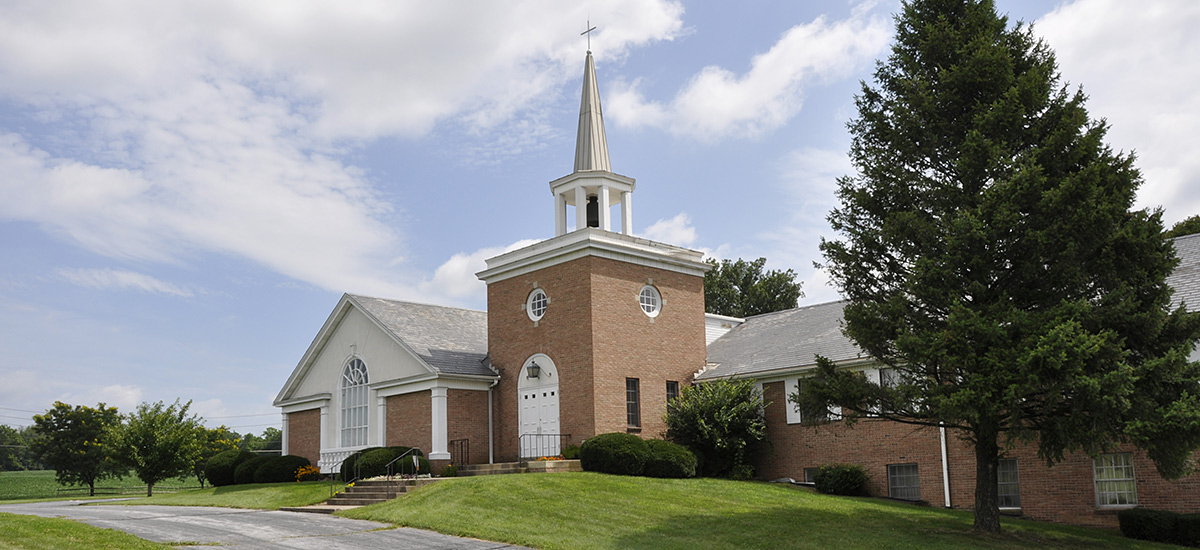My Last Visit to a Southern Baptist Church
By Martin Thielen
March 5, 2024

My first visit to a Southern Baptist church occurred in 1971, when I was fifteen years old. My family had just moved from Alamogordo, New Mexico, to my parent’s hometown of Muskogee, Oklahoma.
On my first Sunday in town, my aunt, uncle, and cousin took me to their Southern Baptist church, where I heard, for the first time, a simple message about “accepting Jesus Christ as your personal Lord and Savior.” During the invitation, while the congregation sang “Just as I Am,” I walked down the aisle, took the preacher by the hand, and said, “I want to be saved.”
The following Sunday, as I stood in the baptismal pool, the pastor said, “In obedience to the command of Jesus Christ, and upon your profession of faith in him as your Lord and Savior, I baptize you in the name of the Father, and of the Son, and of the Holy Spirit.” He then immersed me into the waters of baptism. I had indeed been saved. Nine months later I decided that I wanted to be a Baptist preacher, and I set my sights on that goal.
My shelf life in the Southern Baptist Convention lasted twenty-three years. Those years included degrees from Ouachita Baptist University, Southern Baptist Theological Seminary, and Midwestern Baptist Theological Seminary. They also included pastoral work in the state of Arkansas, a denominational position at the Baptist Sunday School Board, and a final pastoral gig in Honolulu, Hawaii.
Two Crucial Questions
I departed the SBC in June 1994. A few years earlier, while serving at the Baptist Sunday School Board during the fundamentalist takeover, I asked myself, Can I stay in denominational work and keep my integrity? Sadly, the answer, at least for me, was no.
So I left the Board and went to the pastorate in Honolulu, where I kept a surfboard in my church office and another one at home. But a few years later, in the midst of overwhelming despair over the toxic culture in the SBC, I asked a more difficult question. This time the question was, Can I stay in this denomination and keep my integrity? Once again the answer was no.
With great sadness, I sold my surfboards, resigned my pastorate, and left the SBC. My family and I moved to Nashville, Tennessee, where I began PhD studies at Vanderbilt University and became a United Methodist minister. At that point in my life, I figured I would never again see the inside of a Baptist church. But I was wrong.
On the Road to Louisville, Kentucky
Sixteen years later, in 2010, I made my last visit to a Southern Baptist church. Technically, it was a chapel, the one at Southern Baptist Theological Seminary in Louisville, Kentucky. During that visit I experienced a profound moment of spiritual and emotional healing for the painful and long-simmering wounds inflicted upon me by the SBC.
At the time, I was enjoying a contented, joyful, long-term United Methodist pastorate in the state of Tennessee. During my decade-long tenure, the church experienced dramatic revitalization and growth. We did so by boldly identifying as a progressive congregation of “Open Hearts, Open Minds, and Open Doors” in a deeply conservative evangelical community.
I had just turned in the manuscript for my book, What’s the Least I Can Believe and Still Be a Christian?, which laid out a moderate to progressive version of Christianity. My publisher, Westminster John Knox, invited me to their headquarters in Louisville, Kentucky, to get better acquainted and to make promotional plans for book’s release.
A Return Visit to Southern Seminary
I arrived in Louisville the afternoon before our scheduled meeting the next morning. Since I had plenty of time, I decided to drive to Southern Baptist Theological Seminary, where I had graduated in 1982 with a Master of Divinity degree.
My first stop was Seminary Village, a seminary owned housing complex seminarians affectionally called “The Gospel Ghetto.” I found our old C-10 apartment, got out of the car, and walked around our old digs.
During the walk I recalled many fond memories, including my son driving his “Hot Wheels” bicycle like a bat out of hades on the Seminary Village sidewalks, me dressing up as a crazed lunatic on Halloween (the seminary kids loved it!), cookouts with our neighbors, and lively theological conservations with fellow students.
Next, I drove to the main campus. Since the seminary was on break, things were especially quiet. I walked into several of the classrooms I attended as a student, including my yearlong class in systematic theology. I went into the library where I spent many hours studying Hebrew and Greek. Eventually, I found myself at the front door of the chapel. Although I feared it might be locked, the door opened wide, and I walked into the empty sanctuary.
Tears of Grief
I stood quietly for a long time, taking in old familiar sights inside the chapel. Then I sat down in one of the pews. Memories of special moments in that sacred place flooded my mind. Before I knew it, my eyes filled with tears.
At first, they were tears of grief. This exceptional institution, where I (and generations of clergy before me) had received a topflight theological education, had been reduced to a fundamentalist Bible college. And its president used the school as a national platform to spew out some of the most mean-spirited, intolerant, and toxic religion that American evangelicalism has ever known. I wept for the loss.
However, my tears weren’t just for the demise of my beloved seminary. I also wept for the other seminaries, boards, and agencies of the SBC. That included the Baptist Sunday School Board, where I had published a trilogy of books and hundreds of magazine articles and where I worked for four years as a worship and preaching editor and consultant. I loved my job at the BSSB, especially being the editor of Proclaim magazine. I was well suited for the work and hoped to stay for decades. But the fundamentalist takeover of the SBC destroyed that hope, and I reluctantly resigned.
As I sat in the chapel grieving that painful loss all over again, I also felt grief for the tens of thousands of churches in the SBC, who were now part of a denomination that had lost its way and seemed to be doing more harm than good. I especially grieved for the good churches I had pastored in Arkansas and Hawaii who would never be the same.
Tears of Gratitude
I cried for a long time, which surprised me. I thought my grief for the demise of the SBC was mostly behind me. However, in that moment, it still felt deep and raw. Eventually the tears subsided and my feelings began to shift. Instead of focusing on my grief, my emotions slowly turned to gratitude. In spite of all the pain and losses, I realized that the SBC had also given me some precious gifts.
Most importantly, the Southern Baptist Convention introduced me to Jesus, who transformed my life and continues to do so. They became the family my dysfunctional childhood family could not be. They loved me. They affirmed me. They educated me. They gave me a meaningful vocation as a minister of the gospel. And they gave me exceptional opportunities of service at a young age. In that poignant moment, I had a crucial epiphany. I realized that in the big picture of my life, the SBC blessed me far more than it wounded me.
As I reflected on those dynamics, I once again felt tears trickling down my face. However, this time, they were not tears of grief but tears of gratitude. I lingered in that transcendent experience for a long time. Finally, about half an hour later, I left the chapel and returned to my car.
As I drove from the seminary to the hotel, I felt like a heavy load had been lifted from my heart and soul. I had carried that load for a long time. It felt good to finally release it.
AUTHOR’S NOTE
To share this post, please click the appropriate icon at the bottom of the page. If you would like to communicate with me, feel free to send an email and I’ll respond as soon as possible. To receive my monthly newsletter (a brief email notification alerting you to new posts and other materials), please do so today. Thank you for your interest in Doubter’s Parish. Writing for you is a joy.
